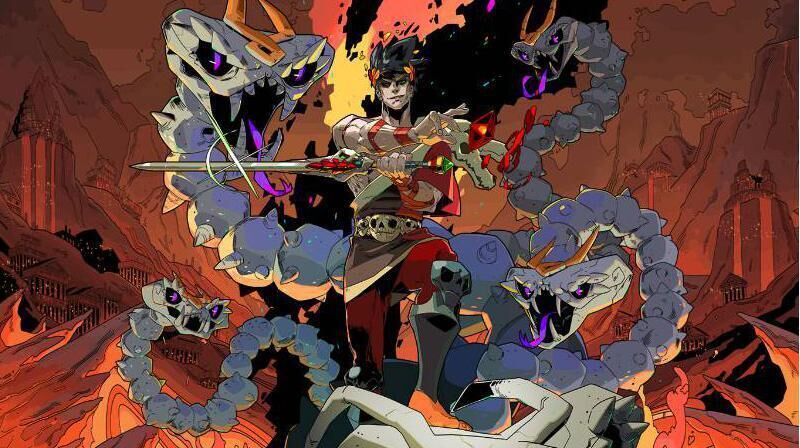GameTech: Hades provides an enjoyable hack and slash journey through the underworld

A scene from the Hades video game.
Your dad may not be perfect, but at least he isn’t Hades. The Lord of the Underworld isn’t exactly a tolerant deity. He raised you good and dead – and expects you to stay that way.
The best game of 2020 was Hades, the tale of Prince Zagreus, son of the Underworld, who has decided to leave his nether family behind and escape to the surface. The only problem is that the Underworld was not designed to be escaped, and families aren’t so easy to abandon.
Hades is a masterpiece of roguelikes, a genre that typically relies on gameplay loops and repetition to keep players hooked. The whole point of roguelikes is to die repeatedly, often learning just a little bit more about how to improve your skills or survive, so the next ‘run’ takes you even further. In Hades, not only does the Underworld setting perfectly suit that concept, but Prince Zagreus does far more than just learn new skills or combat as he dies – he learns about his extended family, the pantheon of Greek gods that are eager to assist his escape.
Hades is best described as a roguelike and interactive novel in one incredible package. The developers Supergiant confirmed that the game has over 300,000 words and 21,000 voiced lines, and that level of attention to the story really shows.
As Prince Zagreus makes attempt after attempt to leave the Underworld, he receives ‘boons’ from the Olympian gods which grant him power-ups, but also develop the backstory and characters of the world. The further you develop your set of skills and ‘relationships’ in Hades (by giving the characters gifts), the more the dialogue changes to reflect that.

The result is a sublime combination of excellent action hack-and-slash gameplay, where each run grants you progress towards new power-ups, which in turn develop the story and characters in a really organic fashion. It transforms the often mechanical roguelike genre into an interactive universe of characters, and a touching story.
In fact, that evolution of the roguelike is exactly what makes Hades the best game of the last 12 months. Traditionally, people enjoy roguelikes for their focus on pure gameplay and design. You can easily pick up and play one ‘run’ of a good roguelike in 30 minutes or less. But you usually sacrifice story, a sense of universe, and any semblance of character development. In Hades, not only do you get some of the best roguelike gameplay ever, but you also get some of the best storytelling, art and music in gaming.
Hades has really set the bar for how gameplay and story can interact in this genre. If you haven’t played it, just give in – there’s no escaping it.
If there’s one series that needs to come back from the dead, it’s Castlevania. The closest we’ve come to that in recent years is the impressive Bloodstained: Ritual of the Night. Produced by Castlevania creator Koji Igarashi, Bloodstained is essentially a spiritual successor to Konami’s vampire-hunting franchise, which was Kickstarted by fans who were craving more.
To Igarashi’s credit, not only did Bloodstained meet expectations upon release, but the development team have continued to deliver free updates to the game in the two years since. The latest of these is the much-anticipated ‘Classic Mode’, which is the closest Bloodstained has yet come to the original Castlevania games of 20 years ago.
Classic Mode is a 16-bit style mini-game, in which the heroine Miriam must tackle 5 levels across Hellhold, defeating one of Gremory’s demons in each one. It’s another nice addition to the Bloodstained catalogue and releases free for owners of original game tomorrow, January 14.
Speaking of being dead meat, the long-await Super Meat Boy Forever has been released. The original game was a genre-defining moment, one that re-popularised the idea of extremely difficult platformers. This sequel tries something different, and arguably with less success. Super Meat Boy Forever is an ‘autorunner’, much like the famous Temple Run on android or Super Mario Run. In addition, it has procedurally generated levels, derived from over 7000 set pieces, which make each run unique.
While these features aren’t necessarily negatives (in fact, as with Hades above, procedural generation can be very positive), fans of the original may take time to accept the new format and approach. Should lead to some meaty debates.



